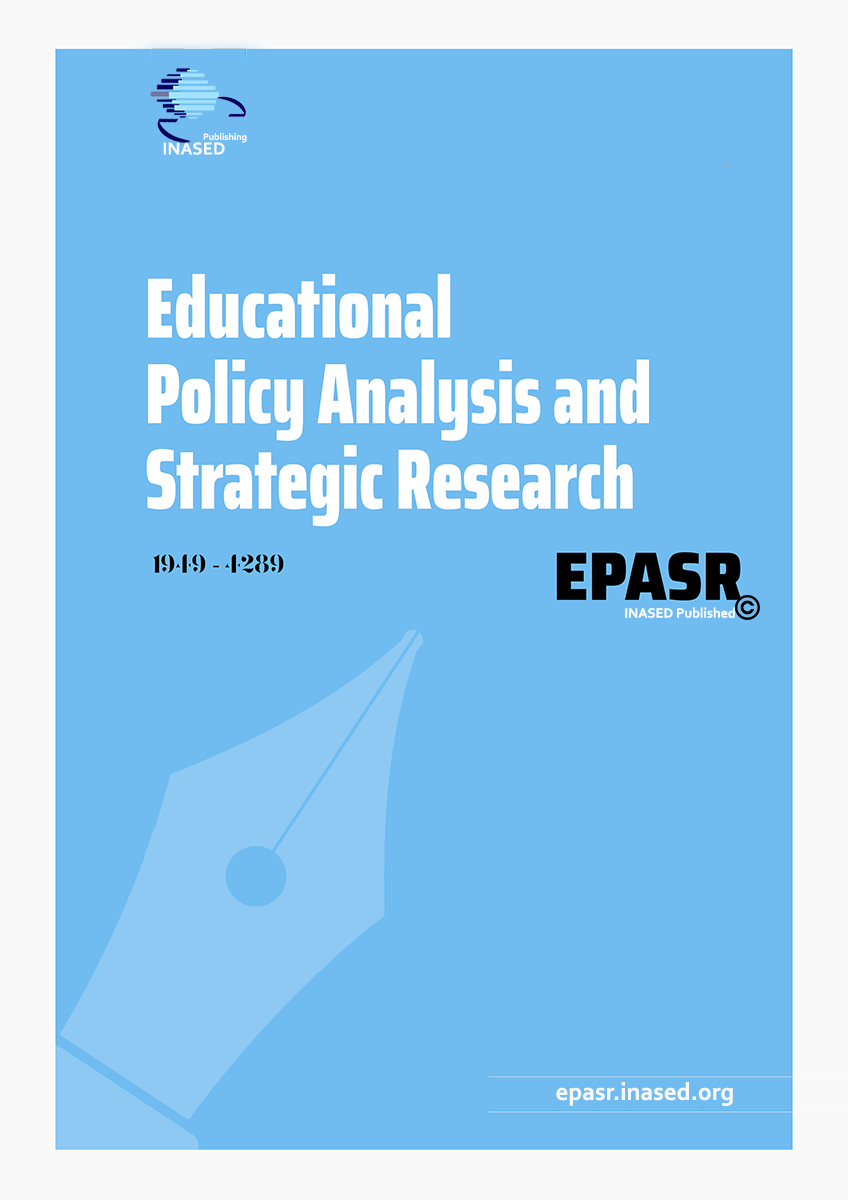- Aslantaş, T. (2014). Uzaktan eğitim, uzaktan eğitim teknolojileri ve Türkiye’de bir uygulama. Retrieved 1 January 2020 from https://www.tankutaslantas.com/wp-content/uploads/2014/04/Uzaktan-E%C4%9Fitim-Uzaktan-E%C4%9Fitim-Teknolojileri-ve-T%C3%BCrkiyede-bir-Uygulama.pdf. [Google Scholar]
- Aytaç, T. (2021). The problems faced by teachers in Turkey during the COVID-19 pandemic and their opinions. International Journal of Progressive Education. 17(1), 404-420. https://doi.org/10.29329/ijpe.2020.329.26 [Google Scholar] [Crossref]
- Bakioğlu, B., & Çevik, M. (2020). COVID-19 pandemisi sürecinde fen bilimleri öğretmenlerinin uzaktan eğitime ilişkin görüşleri. Turkish Studies, 15(4), 109-129. https://dx.doi.org/10.7827/TurkishStudies.43502 [Google Scholar]
- Bayburtlu, Y.S. (2020). Covid-19 pandemi dönemi uzaktan eğitim sürecinde öğretmen görüşlerine göre Türkçe eğitimi. Turkish Studies, 15(4), 131-151. https://doi.org/10.7827/TurkishStudies.44460 [Google Scholar] [Crossref]
- Bernroider, B. (2002). Factors in SWOT analysis applied to micro, small-to- medium, and large software enterprises: An Austrian study. European Management Journal, 20(5), 562-573. https://doi.org/10.1016/S0263-2373(02)00095-6. [Google Scholar] [Crossref]
- Bilgin, N. (2014). Sosyal bilimlerde içerik analizi: teknikler ve örnekler çalışmalar. (3.b.), Ankara: Siyasal. [Google Scholar]
- Büyükalaca, O., Gül, A., Efeoğlu, E., Ergün, B., Keleş,C. Sezgin, A.A.,Yakut, E. (2009) Osmaniye ili SWOT analizi. Proje Raporu, Osmaniye Korkut Ata Üniversitesi, Osmaniye, 1-73. [Google Scholar]
- Çalık, T. (2003). Eğitimde stratejik planlama ve okulların stratejik planlama açısından nitel değerlendirmesi. Gazi Üniversitesi Kastamonu Eğitim Dergisi, 11(2), 251-268. [Google Scholar]
- Can, E. (2020). Coronavirüs (Covid-19) pandemisi ve pedagojik yansımaları: Türkiye’de açık ve uzaktan eğitim uygulamaları. Açıköğretim Uygulamaları ve Araştırmaları Dergisi, 6(2), 11-53. Retrieved 3 September 2020 from https://dergipark.org.tr/tr/download/article-file/1179832. [Google Scholar]
- Ersoy, A. F. (2016). “Fenomenoloji”, A. Saban, & A. Ersoy (Ed.). Eğitimde Nitel Araştırma Desenleri (s. 51-111). Ankara: Anı Yayıncılık. [Google Scholar]
- Gao, C., & Peng, D. (2011). Consolidating SWOT Analysis with nonhomogeneous uncertain preference information. Knowledge-Based Systems, 24, 796-808. https://doi.org/10.1016/j.knosys.2011.03.001. [Google Scholar] [Crossref]
- Johnson, B. & Christensen, L. (2014). Eğitim araştırmaları: nicel, nitel ve karma yaklaşımlar. (S.B. Demir, Çev. Ed.) Ankara: Eğiten Kitap. [Google Scholar]
- Karakuş, N., Ucuzsatar, N., Karacaoğlu, M. Ö., Esendemir, N., Bayraktar, D. (2020). Türkçe öğretmeni adaylarının uzaktan eğitime yönelik görüşleri. Rumelide Dil ve Edebiyat Araştırmaları Dergisi, (19), 220-241. https://doi.org/10.29000/rumelide.752297. [Google Scholar] [Crossref]
- Kaya, Z. (2002). Uzaktan eğitim. Ankara: Pegem A Yayıncılık. [Google Scholar]
- Keskin, M., & Kaya, D. Ö. (2020). COVID-19 sürecinde öğrencilerin web tabanlı uzaktan eğitime yönelik geri bildirimlerinin değerlendirilmesi. İzmir Katip Çelebi Üniversitesi Sağlık Bilimleri Fakültesi Dergisi, 5(2), 59-67. Retrieved 1 September 2020 from https://dergipark.org.tr/en/download/article-file/1196338. [Google Scholar]
- Luo, Z. Qin. (2012). SWOT analysis of functions of Chinese universities. IERI Procedia, 2, 253-257. [Google Scholar]
- Merriam, S.B. (2013). Nitel araştırma-desen ve uygulama için bir rehber. (Trans. S. Turan), Ankara: Nobel. [Google Scholar]
- Miles, M.B., & Huberman, A.M. (2015). Nitel veri analizi. (Trans. S. Akbaba Altun and A. Ersoy) Ankara: Pegem Akademi Yayınları. [Google Scholar]
- Muijs, D. (2004). Doing quantitative research in education. London: Sage Publications. [Google Scholar]
- Özan, M. B., Polat, H., Gündüzalp, S., & Yaraş, Z. (2015). Eğitim kurumlarında swot analizi. Turkish Journal of Educational Studies, 2(1), 1-28. Retrieved 1 January 2020 from https://dergipark.org.tr/tr/download/article-file/403132 [Google Scholar]
- Öztemel, E. (2001). Belediyelerde toplam kalite yönetimi. Adapazarı: Değişim Yayınları. [Google Scholar]
- Panigrahi, J. K., & Mohanty, P. K. (2012). Effectiveness of the Indian coastal regulation zones provisions for coastal zone management and its evaluation using SWOT analysis. Ocean & Coastal Management, 65, 34-50. https://doi.org/10.1016/j.ocecoaman.2012.04.023. [Google Scholar] [Crossref]
- Pilanci, H. (2009). Uzaktan Türkçe öğrenen yabancıların Türkçeyi iletişim aracı olarak kullanabilme yeterlikleri. Dil ve Dilbilimi Çalışmaları Dergisi, 5(2), 49-61. Retrieved 20 January 2020 from https://dergipark.org.tr/tr/download/article-file/104714. [Google Scholar]
- Tabak, B. İ. (2003). Türkiye'nin uluslararası pazar fırsatlarının belirlenmesinde SWOT analizi. Süleyman Demirel Üniversitesi İktisadi ve İdari Bilimler Fakültesi Dergisi, 8(1), 221-234. Retrieved 21 January 2020 from https://dergipark.org.tr/tr/download/article-file/195050 [Google Scholar]
- Uçar, H. (2016). Uzaktan Eğitimde motivasyon stratejilerinin öğrenenlerin ilgileri, motivasyonları, eylem yeterlikleri ve başarıları üzerine etkisi. (Yayımlanmamış Doktora Tezi). Anadolu Üniversitesi, Eskişehir. [Google Scholar]
- Weihrich, H. (1982). The TOWS Matrix – a tool for situational analysis. Long Range Planning, 15(2), 54-66. https://doi.org/10.1016/0024-6301(82)90120-0. [Google Scholar] [Crossref]
- Yıldırım, A. ve Şimşek, H. (2013). Sosyal bilimlerde nitel araştırma yöntemleri. (9.b.), Ankara: Seçkin. [Google Scholar]
|


